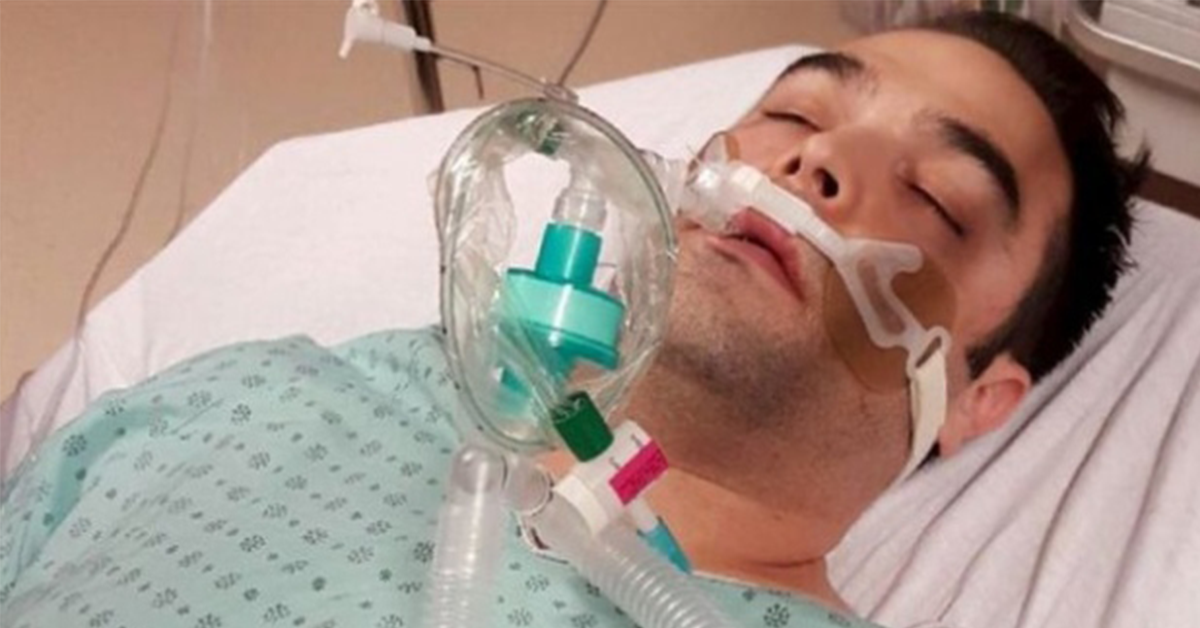By now you’ve probably read about the story of Simon-Pierre Canuel of Gatineau, Quebec, the man who walked into a restaurant on May 29, informed the waiter of his severe allergies to fish and seafood, and ordered the beef tartare.
“At the time of the order, the waiter took no notes and never went to the kitchen to talk with staff,” Constable Martin Carrier of the Sherbrooke police said.
Canuel began eating his meal when it arrived, only to find out that he was eating salmon, not beef.
“We told the waiter, who apologized, saying he would bring me beef,” Canuel recalled. “That’s when I started going into anaphylactic shock and having difficulty breathing.”
Canuel, who had left his epinephrine auto-injector in his car, was taken to the intensive care unit of a nearby hospital and treated for anaphylaxis. He suffered cardiac arrest the next day and was in a coma for several days.
He filed a formal complaint against the 22 year-old waiter on July 21, who was arrested and may be charged with criminal negligence. Though it is not likely the waiter will receive prison time, the episode has drawn significant attention to the plight of food allergy sufferers who attempt to eat out.
Whether or not you believe the waiter should be drawn and quartered, the underlying issue is a frightening one: an estimated 17 million Americans suffer from food allergies – including one in 13 children – and that number is skyrocketing. Meanwhile, the food service industry is woefully unprepared to ensure their patrons’ safety and deal with reactions should they occur.
We advocate the following, all of which likely require some change to state rules or legislation:
- Develop mandatory procedures for restaurants including the disclosure of the allergens handled in the facility, the communication of allergy information provided by the patron from waitstaff to kitchen, and the minimization of opportunities for cross contact of allergens in food preparation and serving;
- Adopt training and certification requirements for all food service employees in the above food allergy procedures before they are permitted to work at an establishment;
- Mandate that all facilities that serve food maintain stock epinephrine auto-injectors to be used in an emergency and that waitstaff and management be trained in recognizing the symptoms of anaphylaxis and the administration of epinephrine.
All food service establishments must meet local health code requirements that minimize food-borne dangers to keep their patrons safe. The growing incidence of food allergy must be recognized as yet another food-borne danger to patrons and dealt with similarly.
- Quebec waiter arrested after seafood puts allergic customer in coma – CBC News
- Food allergy Statistics – End Allergies Together







while this is horrific – personal responsibility goes a long way. Frankly – I don’t eat places where I might have a problem. I can’t imagine not visually seeing the vast difference, never mind aroma and first bite of salmon vs. beef. I’m also horrified that someone that allergic would sit down in a restaurant without an auto injector. That is reckless and stupid. is the waiter at fault? I don’t know – sure would I like restaurants to take more responsibility? sure – but they don’t. I make a point to spend my money at the ones that do. when you have life threatening food allergies, personal responsibility is your number 1 weapon.
Absolutely agree! Personal responsibility is key. Who would blindly trust a waiter to ensure their food was allergen free? NOT ME! There are many restaurants that will go a long way to ensure their guests can enjoy an allergen-free meal and have the appropriate protocols in place to handle these requests. I am not under any impression that I can freely walk into any restaurant and safely dine (as much as I wish that were true), but there are certain basic procedures one should follow before dining anywhere with a food allergy that didn’t seem to be followed
Eh, training waiters to provide medical care seems kinda hopeless to me, at least here in lawyer-land. Who bears the liability if a waiter mis-diagnoses someone?
+1 to asking every time. You just never know. I remember almost accepting a slice of chocolate cake at a party – it’s just chocolate cake, right? – but then sheepishly asking the waiter if it had nuts. By God’s grace he was really on the ball and knew it was made with almond flour. Ever since, I’ve been pretty unashamed about asking.